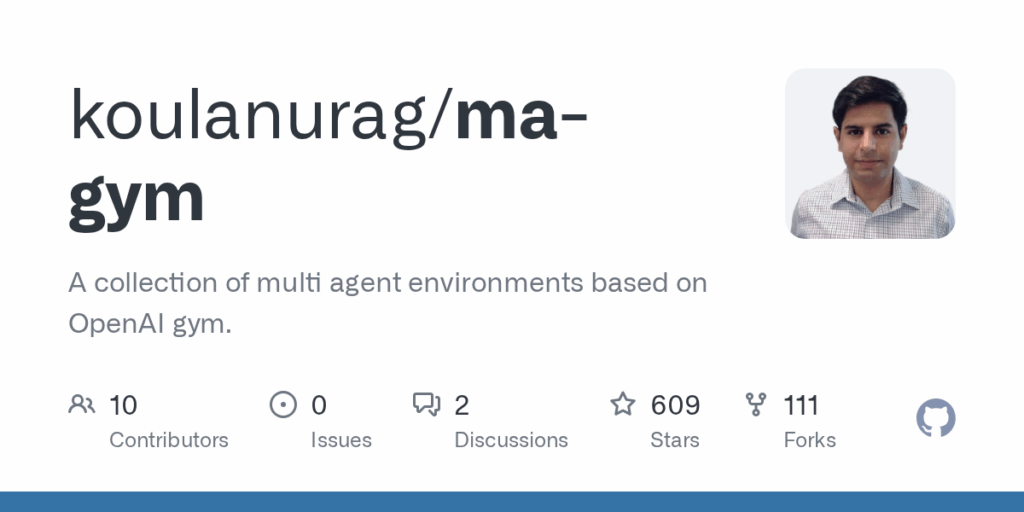ma gym
Basic Information
ma-gym is a repository that collects multi-agent reinforcement learning environments implemented on top of the OpenAI Gym interface. It is intended as a library of environment scenarios that expose multi-agent interaction dynamics while remaining compatible with Gym-style APIs. The repo purpose is to give researchers, educators, and developers access to reusable simulated environments where multiple agents can act, observe, and receive rewards so algorithms for coordination, competition, or cooperation can be developed and evaluated. The README and repository signals make clear the focus is on environment assets rather than specific agent implementations or training pipelines.
Links
Stars
609
Github Repository
Categorization
App Details
Features
The project centers on a set of multi-agent environments built around the OpenAI Gym design, emphasizing Gym compatibility and multi-agent interaction. It packages environment definitions that can be imported into Gym-based workflows. As a collection, it aims to standardize interfaces for multiple agents, enabling consistent observation, action, and reward handling across scenarios. The repo is open-source and organized for reuse in experiments. Concrete environment names, configuration files, or example scripts are not present in the provided README excerpt, so details about specific scenarios, observation types, or wrappers are not asserted.
Use Cases
Researchers and developers working on multi-agent reinforcement learning can use this repository as a source of gym-compatible environments to test and compare algorithms. It simplifies experiment setup by offering prebuilt scenarios that implement multi-agent interaction patterns, reducing the need to design environments from scratch. In education, instructors can use the environments to demonstrate multi-agent concepts and let students implement agents that plug into a familiar Gym interface. The collection supports reproducible experimentation and benchmarking by providing consistent environment semantics across different algorithm implementations.








